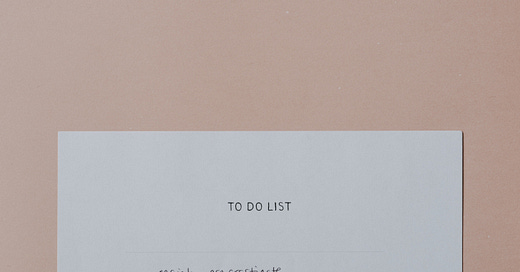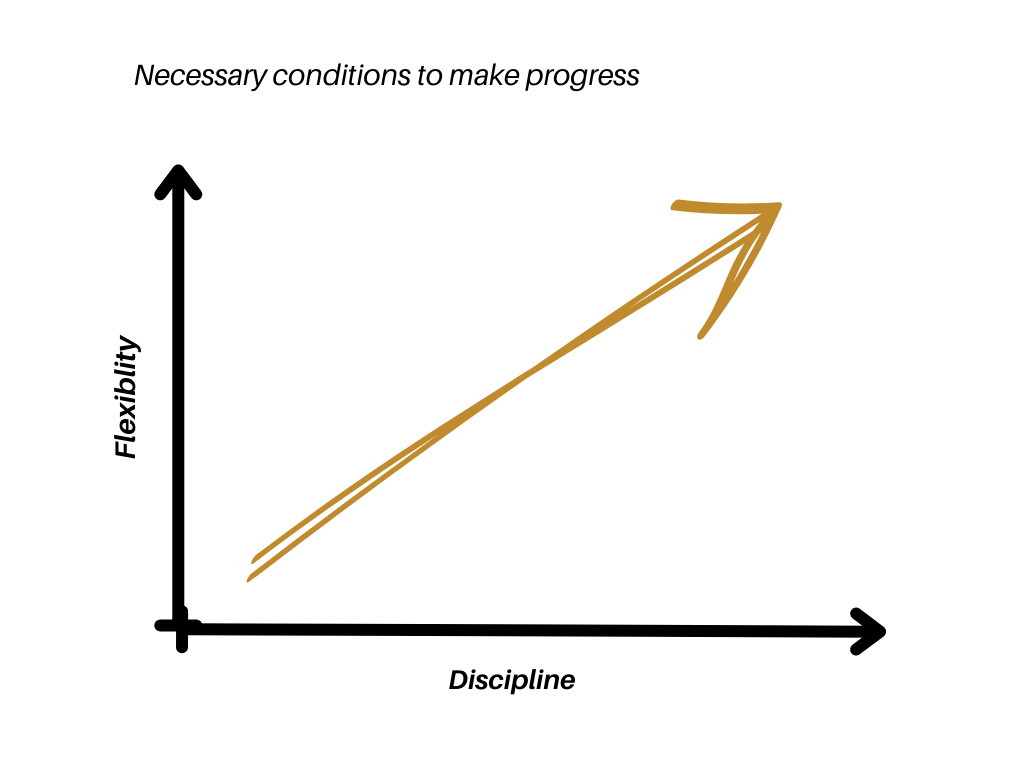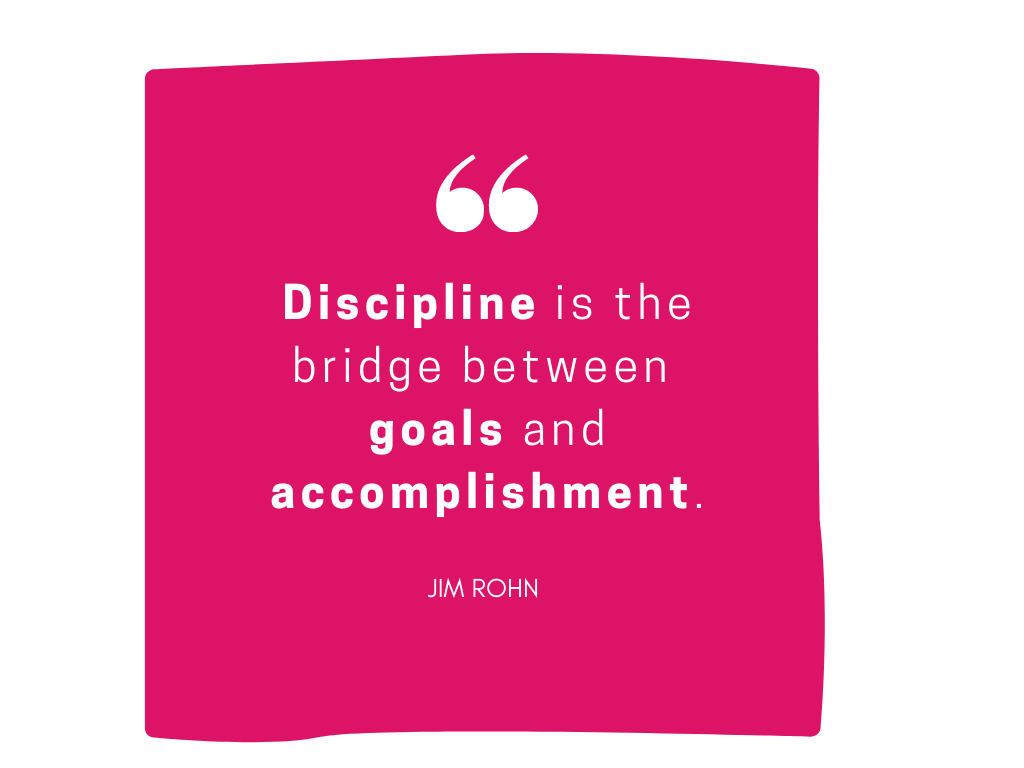The leaders I work with are talking a lot about flexibility right now. Employees are demanding flexibility; radical flexibility if this report by McKinsey is to be believed.
We’re craving flexibility to do the work we want, how we want, when we want and from where we want.
But when the level of flexibility increases, so too does the need for discipline.
If you want freedom over your diary, you need the discipline to be able to manage the competing priorities and demands; and the discipline to say no. If you want to financial freedom, then you need the discipline to save. And if you want to get fit, you need the discipline to work out, regularly, whether you feel like it or not.
The relationship between flexibility and discipline might look something like this:
In business we place a lot of emphasis on establishing clearer, smarter goals; embedding reporting frameworks, fixing meetings and fixing deadlines. But strip these all back and at their core, what those frameworks and processes are often are trying to replace is discipline.
The challenge is that all of these layers, structures and systems exist to keep people accountable often result in more emphasis being placed on compliance and rule following; rather than valuing the behaviour of discipline; where people act because they want to.
Netflix is an interesting case study here with which you may well be familiar; their expenses policy is just five words long; ‘Act in Netflix’s best interest’.
That much freedom relies on discipline; not just from individual team members, but also the discipline of managers to trust, and not overly manage or control.
Most organisations will never go this far, nor will they want to.
Yet it poses a question about what level of self discipline is needed for you - and your organisation - to sustain the optimum working levels needed to succeed?
Here are five things to help you think deeper about discipline today.
Meantime, if you haven’t already, I’d love it if you hit the button below.
Wise words: Jim Rohn famously said:
Think about your top three goals right now.
What level of discipline needs to be in place to help you accomplish them?
What’s keeping you from being that self disciplined?
What can you learn from experiences where you have shown great discipline?
Culture: Workplace flexibility is one of the biggest asks from candidates right now, and many organisations are embracing flexible working hours, remote working options and flexible leave arrangements.
Yet far fewer organisations are exploring whether their level of discipline is where it needs to be to operate without adding increased levels of reporting and checks.
Think about your organisation:
Where do you focus most in your business; increasing flexibility or increasing discipline?
What initiatives do you have in place to increase flexibility and what do you have in place to increase discipline?
What could you do more of or less of to get you to where you want to be?
Lead it: Introducing new initiatives and policies is never sufficient on its own to drive culture change. Transforming a culture starts with the executive team, leaders and managers demonstrating the behaviours you want first, consistently. So if you want more discipline, it starts with you.
Think about your day to day working practices, your internal communications and major programmes. Ask yourself:
Where would you place your Executive team and leaders on the spectrum of discipline?
What behaviours would you see more of if it moved to the left?
And what would that make possible for your business?
Read: Jocko Willink, retired U.S. Navy SEAL officer and commander of the most highly decorated special operations unit of the war in Iraq, wrote the book on his belief that without discipline there will be no progress; discipline equals freedom.
If this is true, reflect on the level of freedom you want. What level of discipline are you prepared to embrace to achieve it?
You can find a link to Jocko’s book by clicking on the image below.
Live it: Self discipline, is just that; discipline of the self. Self discipline to do and self discipline to not do. Self discipline to start and self discipline to stop. Self discipline to continue when the going gets tough, to keep putting one foot in front of the other.
There are strategies and tactics you can put in place to help build self discipline. Jocko Willink shares a snapshot on twitter each day of his watch when he gets up at 4.30am. Working one on one with a coach also acts as a source of accountability; helping you stay focussed when the chaos around you is getting in the way.
Take some time and reflect on what works for you; look back at the last week or month:
When have you been at your most self disciplined?
When have you procrastinated the most? What actions or patterns exist?
What helps you hold yourself accountable the most?
If you found this piece useful, I’d love if you could forward it or share it with someone who needs a touch of inspiration today. Just click on the button below.
Meantime, if you missed last weeks issue about how to balance short term career priorities with long term goals, you can find it here:
Thanks for reading Leadership with Rebecca. You can find more thought provoking leadership thinking here and connect with me on Linkedin and Twitter.











